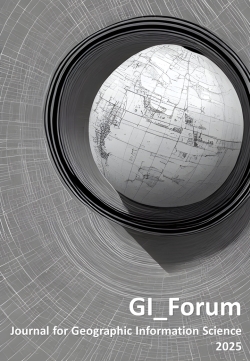
GI_Forum 2025, Volume 13, pp. , 2025/06/04

Digital Earth vision – in short ‚DEvision’1 – with the motto of ‘Digitally Connecting Real and Virtual Environments’ is an initiative aiming at the integration of geospatial online and blended learning modules into curricula of multiple disciplines at partner institutions and beyond. It implements digital transformation concepts in societies, economies, and environments by involving students and in-service professionals beyond the traditional ‘geospatial’ subjects, addressing planning and conservation, logistics and ecology, tourism and agriculture. All these and more fields are inherently spatially organized, therefore benefit from an explicit spatial approach, and require inclusion of geospatial awareness and methods in their curricula. By connecting and enhancing the real world with virtual representations, the vision of Digital Earth implements a transdisciplinary geospatial perspective. This will benefit the development of economies everywhere, particularly emerging ones. This vision of a Digital Earth is aligned with general digital transformation in society and business, with implementation of sustainable development goals, and a live-long learning paradigm. Overall, DEvision follows several clearly defined principles: (i) blended learning based on online resources, (ii) instructor-led pathways aligned with students’ majors, (iii) a modern approach to GIS entirely based on cloud platforms, and (iv) orienting students towards a continuous professional development principle based on online communities.